The Reality of Asian Representation in Film
- Multiple Authors
- Dec 1, 2020
- 7 min read
Updated: Jan 11, 2021
Bong Joon-ho’s Parasite (2019) winning the Academy Award for Best Picture was a momentous event for both the film industry and the Asian community. This win signified Hollywood’s efforts to progress, alongside how far Asians have come in a place where white actors and filmmakers are favored.
Nevertheless, there is still a prominent lack of actual Asian representation in both films and film awards. Pop Culture Sociologist Nancy Wang Yuen explains how older generations who make up voting boards find Asian American films and TV shows “too niche or foreign” to even be considered for a nomination. Asians only make up 1% of this year’s Emmy nominations, a decrease from the last 10 years’ 2%.
Additionally, Asian actors receive little to no recognition for their roles. Asian films may be awarded during the Oscars, but only 3 Asian actors in total have won for their performance. It becomes visible that the Asian community can barely keep its foot in the room of Hollywood. Therefore, it’s crucial that we shine a bright light on issues Asians face within the industry.
The reality of Asian representation in movies, tv shows, award shows: Hollywood’s “methods” for Asian Characters
Numerous Asian actors are often snubbed for roles meant for those of Asian descent. Asian characters are repeatedly WHITEWASHED, being fallaciously portrayed by non-Asian performers:
Aloha (2015): Emma Stone acts as Allison Ng
Ghost in the Shell (2017): Scarlet Johansson as Motoko Kusanagi
Besides being replaced by non-Asian actors, Hollywood has utilized YELLOWFACE, a form of theatrical makeup used by European-American performers to represent an East Asian person:
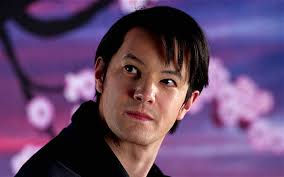
Breakfast at Tiffany’s (1961): Mickey Rooney’s Mr. Yunioshi
Cloud Atlas (2012): Jim Sturgess’ Hae-Joo Chang
Moreover, the industry has reached the point of ENTIRELY ERASING Asian narratives from storylines:
Doctor Strange illustrates the Ancient One as a Tibetan man. Yet the 2016 film changed the character completely, replacing him with a white British actress, Tilda Swinton.
A dilemma Asian stars face is acting the part of an individual outside of their ethnicity. INTERCHANGE is common in Hollywood for all actors, however, happens more frequently with Asian performers:
Chinese actress Zhang Ziyiki plays a Japanese character in Memoirs of a Geisha (2005)
Korean actor Randall Park plays Louis Haung who is Taiwanese on ABC sitcom Fresh off the Boat (2015-2020)
Lana Condor, a Vietnamese actress plays Lara Jean Covey, a Korean teenage girl in To All the Boys I’ve Loved Before (2018)
Non-Asian actors are also interchanged, YET Asian performers receive harsh criticism for their personations. This is because interchange enhances stereotypes and normalizes the notion: “ALL ASIANS LOOK THE SAME” Further blurring the lines of distinct Asian cultures. However, casting directors should be the ones held to a fault, constantly excusing this harmful method as a “casting convenience.”
Due to minimal racial representation, Asian stars give into these acting roles despite the ethnic variance. Regardless of Hollywood being a melting pot, the industry should not blend the identities that form our diverse Asian community.
Disney’s Live-action Mulan (2020): The Need For Representation
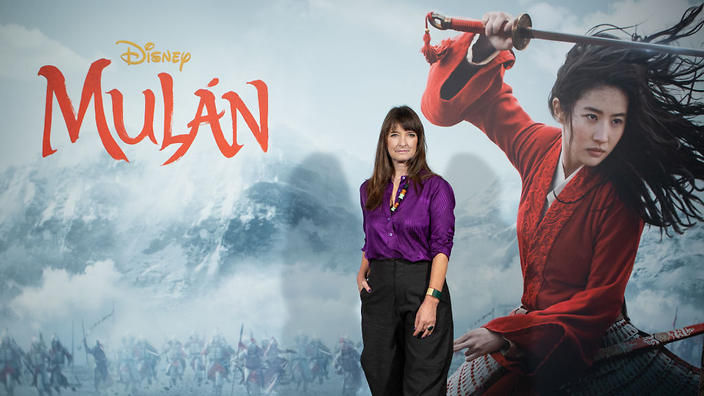
In the wake of the coronavirus pandemic, the major release of the live-action remake of Disney’s Mulan (2020) has left audiences displeased and questionable as to the lack of genuine representation portrayed on and behind the silver screen. The film itself was assembled by an ALL-WHITE TEAM OF DIRECTORS AND PRODUCERS, in which they overlooked the history of Chinese culture, as well as misinterpreting the term “chi” and the film’s suitable obsession with “honor.” Mulan (2020) director, Niki Caro, has recently received criticism due to its inaccurate portrayal of Chinese cultural ideals, in comparison to the original 1998 animation.
Despite the on-screen representation live-action Mulan (2020) bestows, Disney is not shielded from their PERFORMATIVE ACTIVISM. The actors are essentially “puppets”, not exactly qualified to have a say in how their character’s storyline should be demonstrated. Regardless of Caro's efforts to make the film a genuine depiction of Chinese culture and values, there is still an apparent divide: the crew has failed to see that Mulan is a universal story that inspires Asians from all over the world.

As of August 2019, Mulan actress, Liu Yefei, expressed her full endorsement of police brutality in Hong Kong on Twitter. Eventually, this stirred up controversy and backlash, causing fans worldwide to boycott the film, due to her inhuman behavior. The location the directors chose to film turned out to be Xinjiang, China, a region where Uyghur Muslims are being held in concentration camps.
Aside from the frustration and disputes expressed by the viewers, there have been drastic changes made to the 2020 remake:
The original animated Disney movie consisted of powerful musical numbers and hits from “Reflection” to “I’ll Make a Man (Out of You)”.
This film in particular will not be a musical in regards to respecting Chinese culture. However, there will be an original song titled “Loyal, Brave and True” sung by Christina Aguilera, as well as “Reflection” presented at the end of the credits.
Additionally, the directors of the film decided to put a fresh feminine twist on the main villain, titling her Bori Khan, which focuses more on the feminist aspect of the story. Our fan-favorite character Mushu, the friendly dragon will not make an appearance since many Chinese viewers found him “too-American” as well as character, General Li Shang in spite of the #MeToo movement.
Thrive to Normalize
A Hollywood film that features an all Asian cast and attempts to represent Chinese culture, the live-action remake of Mulan (2020) has set the stepping stones for more Asian representation and other people of color in the film industry. However, with rampant illegal downloading, this meant that many viewers in China had already watched the live-action film before it hit the Chinese cinema, leaving negative reviews before the movie’s official release date.
On the other hand, with the film's feministic ideals and on top of being guided by a mostly female-led crew, it is no surprise that Mulan has changed the game plan and opened doors for many women striving to be in the filmmaking industry.
But Mulan (2020) was not the only Asian film that gained a lot of attention…
Movies like Parasite (2019) and Crazy Rich Asians (2018) brought their own mix into the pot.
In one scene of Crazy Rich Asians (2016), Goh Wye Mun (Ken Jeong) imitates a Chinese accent when speaking to Rachel until he says “just kidding,” with an American accent—“I went to Cal State Fullerton.” This scene comes from a “ching chong” stereotype of Hollywood’s past, yet the switch from an Asian accent to a sophisticated tongue of fluency has led viewers to believe this is an aim for normalcy between Asians and whites.
While breaking stereotypes is noticeable, viewers wonder about cultural representation when the industry continues to swap Asian personas with white actors. On the basis of Asian ethnic representation itself—a mix of Chinese, Japanese, and Korean actors were included in the cast, yet many expressed their disappointment in the fact that most South Asians were only in the roles of servants or guards.
Again, with different opinions buzzing around ethnic representation in film, many concluded that calls in the mainstream for diversity can oftentimes fail to represent complexity—instead proving sameness.
That’s not all—winning four Oscars, Parasite (2019) had become the first non-English language film to take Hollywood’s top prize: the Oscar for Best Picture. The film was the first nominee from South Korea and the first screenplay winner from Asia. Absence of diversity has always been an issue of debate resulting in widespread anger from minorities. This accomplishment of inclusion coming from outside the white bubble was a push forward to a new beginning for many people of color in the entertainment industry.
The vote for Parasite (2019) was indeed a vote for the future, representing a glimmer of hope in which storytellers could come from fresh places and movies would reflect voices from all over the world. Alongside, the Academy’s decision to implement new guidelines for more diversity in cast and crew in order to be nominated for Best Picture is a step towards change. Despite Hollywood seeing our struggles more clearly now, we must still push for normalcy of minorities in the film industry.
This is only the beginning.
Let's Reflect...
As Western films’ representation of Asian culture leaves much to be desired, we consumers need to be asking ourselves questions. Namely:
How can I support Asian filmmakers and actors?
Though we cannot change the face of Hollywood overnight, by viewing films featuring Asian filmmakers and actresses, we can monetarily show our support.
How can I raise awareness about the mistreatment of Asians in the film industry?
As a film’s success depends on the “positive buzz” it generates in society and on social media, a boycott or (rightfully placed) negative review can send a message to executives: From Hong Kong to LA, Asians are a powerful demographic, and if a film is racially insensitive, the right boycotts can lead to a box office “flop.”
All in all, is Hollywood’s lackluster representation of Asians disappointing? Yes. But with the power of social media, Asians across the globe can join forces in support of our brothers and sisters in the film industry.
Movie Recommendations from DAY:
Ms. Purple (2019) directed by Justin Chon
Better Luck Tomorrow (2002) by Justin Lin
Lingus Franca (2019) by Isabel Sandoval
The Farewell (2019) by Lulu Wang
Parasite (2019) by Bong Joon-ho
Okja (2017) by Bong Joon-ho
Crazy Rich Asians (2018) by Jon. M Chu
Fresh Off the Boat (2015-2020)
We Bare Bears (2015-2020)
Train to Busan (2016) by Yeon Sang-ho
Author Takes on Asian Representation in Film
Desiree: Although our community is represented in the film industry, individually we’re far from where we should be. Moving forward, we must strive for the normalization of full Asian ensembles, leads, and wins. Alongside, giving Asians of different ethnic backgrounds the opportunity to accurately convey or portray a story meaningful to their culture. As a huge film lover, I hope to see a positive change for our community and fellow BIPOC within Hollywood. Therefore, it’s crucial we bring attention to both the industry’s past and present issues surrounding the Asian community.
Carolyn: Overall, Asian actors should be able to have a say in switching their narratives around while portraying certain characters in films because they have a clear understanding of the character’s culture, as well as their behavior. Diversity and representation is something that I would love to see more, as new films are being released throughout the year. I do hope that changes begin to develop and we are fully recognized for our talents, asides the type of ethnic groups we originate from.
Ashley: Movies like Parasite (2019) and Crazy Rich Asians (2018) are definitely stepping stones for an environment of inclusion in the entertainment industry. Although I do not believe we are where we need to be in terms of diverse representation for ethnic groups and gender, knowing what accomplishments Parasite has created internationally gives me a sense of comfort as a Korean American. After all, movies that reflect the world around us, that aren’t totally lost in fantasy are better movies.
Emily: Looking back on my upbringing, it is all too evident and scary how quickly I internalized Asian stereotypes in the media: I saw myself as the “sidekick,” never the main character. This sense of “otherness” is still something lots of Asians subconsciously struggle with. I think Hollywood forgets just how influential tropes, positive and negative, are on children and how they view themselves. I’d like to see the film industry take much more responsibility to ensure that children of color feel represented on screen.

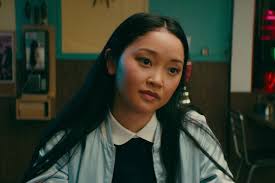
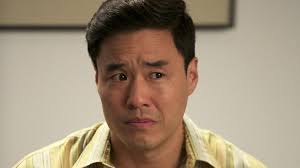

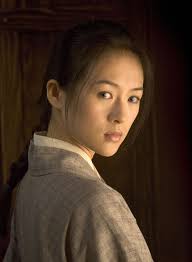



ahhh i love this!
I LOVE IT
!